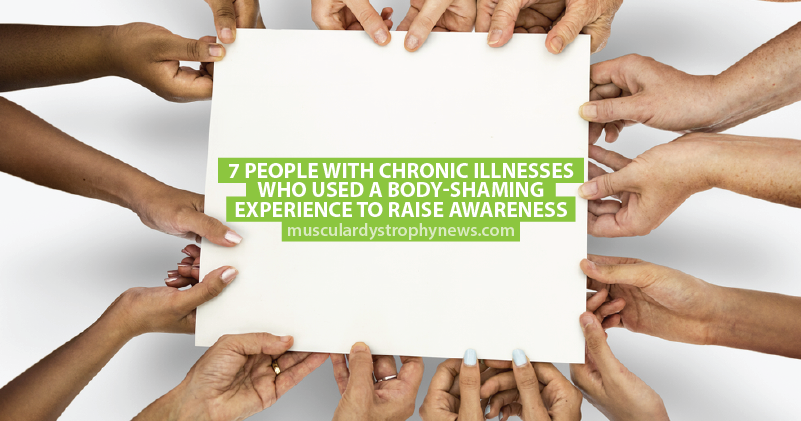7 People With Chronic Illnesses Who Used a Body-Shaming Experience to Raise Awareness

Coping with a chronic illness is challenging, both physically and emotionally. Often the illness can change the way we look, making us feel self-conscious or embarrassed. This is not helped by people commenting on physical changes like weight gain or loss, or other body or facial changes.
MORE: Inspirational young people with muscular dystrophy: Hayleigh Barclay
However, there are people who have used their experience with body-shamers to raise awareness of their chronic illness, taking the opportunity to try and educate people about their disease. Erin Migdol writes for The Mighty about people living with various chronic illnesses and how they have used their own experience to help inspire others and to raise awareness of the effects of chronic illness.
Here are a few famous faces who used their platform to speak out against body-shaming:
Wentworth Miller
Actor and model Wentworth Miller suffered online body shaming when pictures of him circulated comparing his different weights. Miller took the time to explain that he had been dealing with depression and thoughts of suicide, and that the picture that was intended to shame him, actually had the opposite effect and reminded him of his emotional struggle and how far he had come to face his demons.
Sarah Hyland
Famous for playing Haley Dunphy on the hit show Modern Family, Sarah Hyland recently had to deal with a lot of online criticism about her weight. The 24-year-old took the opportunity to share why she had gained weight and her face had become swollen, explaining that it was due to having kidney dysplasia (a condition that required her to have a kidney transplant in 2012) and the medications she needed to treat it. Hyland used social media to address her critics and to ask that people be more understanding and supportive of those living with chronic illness.
Jearlean Taylor
Fashion model Jearlean Taylor hasn’t let her two ostomies get in the way of pursuing her career. Diagnosed with a rare form of vaginal cancer at the age of three, Taylor had two ostomy bags fitted as part of her treatment. She is regularly photographed with the ostomy bags visible and is an inspiration to others who have ostomy bags to go out and follow your dreams and ignore the haters.
MORE: Inspirational people with muscular dystrophy: Robert Watson
Lizzie Velasquez
Lizzie Velasquez discovered that her image was being used as the subject of cruel online memes and videos. Velasquez rose above the cyber bullying and used the experience to become a motivational speaker and author, helping educate others about rare diseases, including neonatal progeroid syndrome (a condition that makes people look older and have distinctive craniofacial features).
Jovika Rivers
Jovika Rivers is an outspoken advocate for lupus and uses social media to post pictures of her symptoms. The comments she receives give her an opportunity to raise awareness of the disease and educate people about what it’s like living with the condition.
Heidi Johnson-Wright
Heidi Johnson-Wright lives with severe rheumatoid arthritis and has to use a power chair. However, don’t make the mistake of thinking she is weak or limited in her abilities. Johnson-Wright recently appeared in a naked photo shoot to show that despite her chronic illness, she is still a strong and beautiful woman.
Jessica Massengale
Jessica has had to deal with self-consciousness and embarrassment as part of her journey with scleroderma, but as she explains in her article What it Feels Like to Look Rare, she defies the stares and gets on with life. She’s using her experience with body-shaming to help others wrestling with feelings of wanting to look “normal,” while also encouraging those who don’t have a chronic illness to reach out and show kindness to those that do, rather than judge them for how they look.
MORE: Inspirational people with muscular dystrophy: Karis Williamson
Muscular Dystrophy News Today is strictly a news and information website about the disease. It does not provide medical advice, diagnosis or treatment. This content is not intended to be a substitute for professional medical advice, diagnosis, or treatment. Always seek the advice of your physician or another qualified health provider with any questions you may have regarding a medical condition. Never disregard professional medical advice or delay in seeking it because of something you have read on this website.






